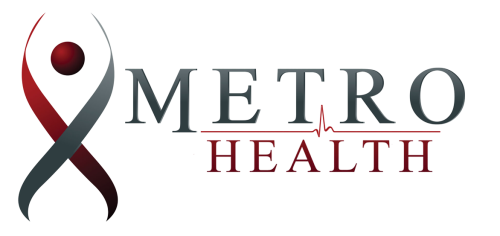The start of 2022 represents new beginnings — a chance to start fresh, make new goals, and keep your body and mind healthy. In order to stay healthy, it’s important to keep up with your doctor’s appointments and screening tests. As we age, the need for regular medical screenings increases. Being proactive about your health can help ensure you stay healthy for many years to come.
This article outlines some of the common screening tests recommended for older adults.
Health Screenings for Women and Men Ages 50 and Older
Screening tests and regular check-ups are important for everyone, especially older adults. As we age, the risk of developing health problems increases. Being proactive about getting screening tests can help detect potential problems earlier so you can get the treatments you need to live a long, healthy, fulfilling life.
Annual Wellness Exam
Visit your doctor at least once a year for a physical examination. They will measure your weight, height, and body mass index. They will also measure your blood pressure and order blood tests to check your cholesterol levels, inflammation markers, blood glucose levels to screen for diabetes, and hormone levels. They will also talk to you about your activity level, eating habits, and lifestyle choices. Your doctor may also ask if you are experiencing any mental health concerns, such as depression. This is a good way for them to follow your overall health and check for changes that occur over time that may indicate potential health issues that need to be addressed.
Colonoscopy
A colonoscopy is a test that uses a camera to take images of your colon to check for polyps (abnormal tissue growth) and tumors. Adults who are 50 and older should get a colonoscopy every 5 years. You should get them more frequently if you have a family history of colorectal cancer or if polyps have been detected in previous colonoscopies. When detected early, colorectal cancer is highly treatable.
Vision tests
Vision loss and eye diseases (e.g., glaucoma, macular degeneration) are common in older adults. Screening tests can help detect any potential issues with your eyes and help improve your vision with the help of prescription glasses and treatments for any eye disease. Hearing tests
Many older adults have hearing loss. Some people have mild hearing loss and for others, it is disabling and affects everyday life. Most hearing loss can be improved through the use of hearing aids. Ask for a hearing test if you are having trouble hearing.
Bone Density Scan
Osteoporosis (a bone disease that weakens bones) is common in older adults. In fact, 75 million people around the globe are affected by the condition. While women are more at risk of developing osteoporosis, men can be affected, too. A bone density scan measures bone mass, which can help indicate bone strength. Regular bone scans should be a part of your screenings after the age of 65.
Vaccinations
Keeping up-to-date with your vaccines can ensure you reduce the risk of contracting certain diseases. The CDC recommends that adults 50 and older should get a shingles vaccine. Adults ages 65 and older should receive a pneumococcal vaccine to protect against pneumonia. You may also want to consider getting your annual flu shot and COVID-19 vaccine/booster. The diphtheria-tetanus booster/pertussis vaccine is also recommended every 10 years.
Health Screenings for Women Ages 50 and Older
Mammogram
Mammograms take images of breast tissue to screen for breast cancer. All women should have a mammogram, but the frequency varies, depending on your age. Women between the ages of 50-74 should have mammograms every year. Women younger than 50 should have mammograms every other year. However, if you have a family history of breast cancer, your doctor may recommend more frequent mammograms.
Pap Smear
Women of all ages need regular pelvic exams and pap smears to detect cervical cancer. Pelvic exams can screen for potential gynecological problems such as bladder problems. Pap smears are recommended once every 3 years to check for cervical cancer and HPV. If you’ve had a hysterectomy or are older than 65, your doctor may tell you that a Pap smear is no longer needed. Check with your healthcare provider to determine if/when you need this screening.
Health Screenings for Men Ages 50 and Older
Abdominal Aortic Testing
Men ages 65-75 who have smoked in the past or currently smoke should get a one-time screening for abdominal aortic aneurysm (AAA). This includes former smokers who have quit the habit.
Prostate Cancer Screening
Prostate screening can help detect prostate cancer. When detected early, prostate cancer is highly treatable. Your doctor may perform a digital prostate exam, or measure your prostate-specific antigen (PSA) levels to measure the amount of PSA in your blood.
Takeaways
Talk with your healthcare provider about booking appointments for screening tests you need. They will help you connect with specialists, give referrals for any tests that need to be done, and will stay in close communication with you to ensure you receive and understand your test results when they come in.

